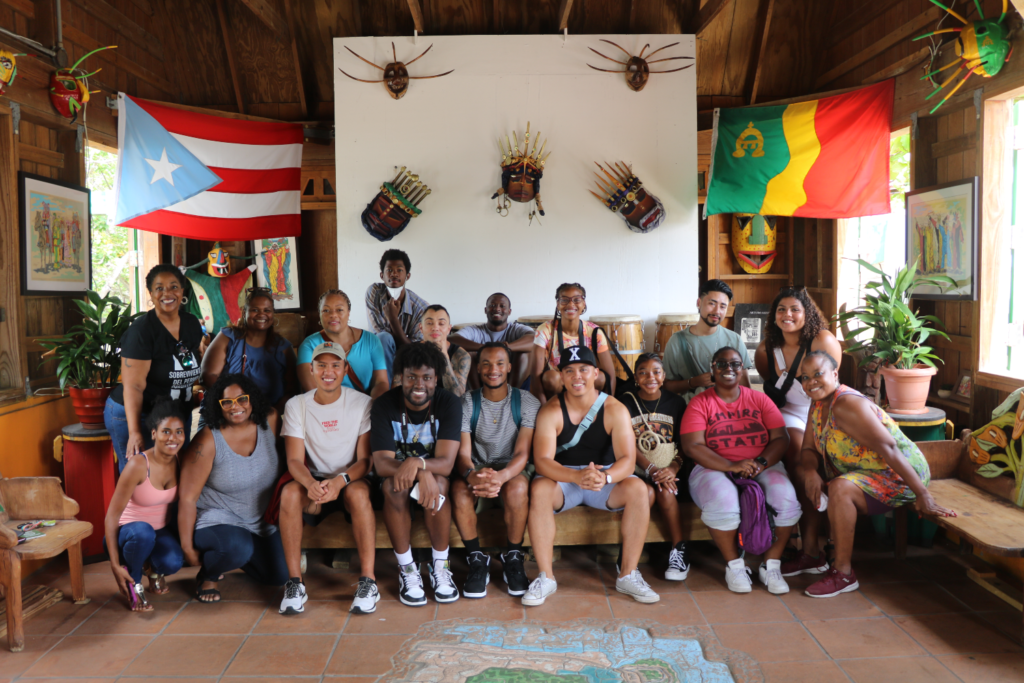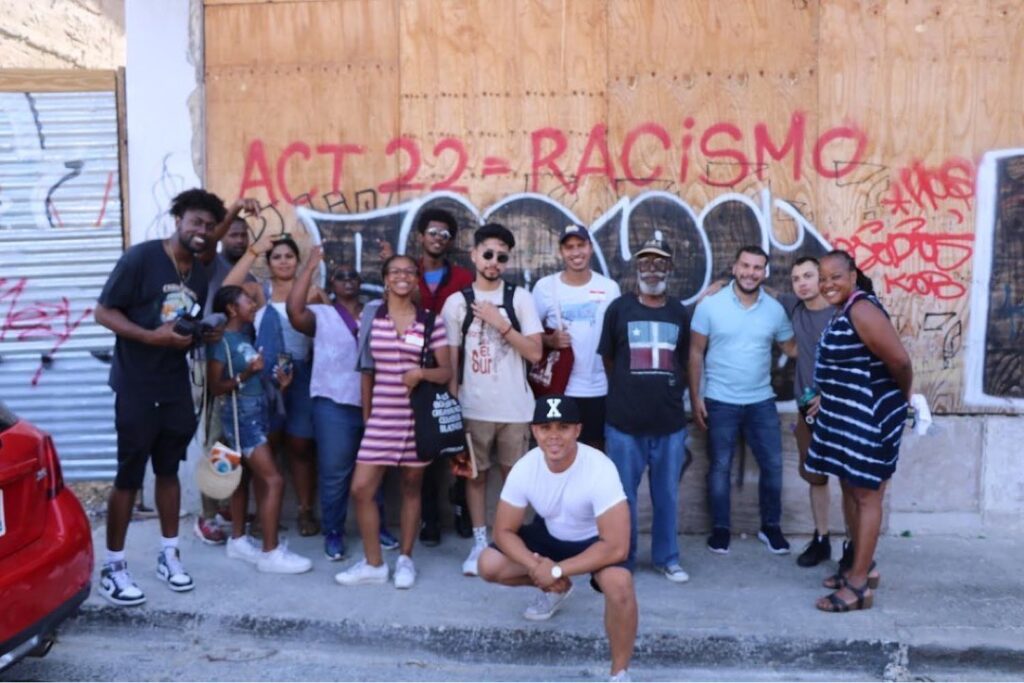A Look at the Youth Justice Fellowship’s First Year
The Youth Justice Fellowship program is a year-long cohort for 10-12 Fellows ages 18-25 who will operate as a think tank and action team research, training, and organizing to improve their communities. The Fellows delve into systemic barriers impacting education, economics, health, environment, and others, learn about the history of social justice, and partner with other agencies and organizations, all while working in a healing and safe space.
Our first cohort from 2021 to 2022, collectively focused their research on state-sanctioned violence and alternatives to community safety, but each Fellow narrowed down a particular issue to tackle like anti-Black racism in the school-to-prison pipeline and alternatives to school policing.
Over the course of the year, Fellows engaged in convenings, retreats, research essay workshops, and a solidarity tour to Puerto Rico.
Convenings
Fellows met 22 times for their political education, research design, and community organizing strategy sessions.
Retreats
Fellowship youth leaders traveled to Carlsbad, CA for a 3-day series of workshops and sessions focused on analyzing the dynamics of healing in harm from the structural, institutional, interpersonal, and personal levels. Facilitators from the Oakland-based Ahimsa Collective guided them through reflective activities and introduced them to restorative justice practices.
They also underwent a 4-day retreat that consisted of research workshops over two weekends. Participants completed their individual 7-page essay assignments and each gave a 10-15 minute presentation on their writing on the first weekend. They then proceeded to craft the design for their action research project as a team the following weekend.
Research Essay Workshops
After gathering for more than a dozen workshops, each of the 9 Fellows wrote a 7-page research essay focused on a particular issue on the subject of state-sanctioned violence. They were required to include an annotated bibliography, citing at least 5 primary sources and at least 5 secondary sources.
Kahlila Williams
Title: Anti-Black Racism in the School-to-Prison Pipeline and Alternatives to School Policing
Marshé Doss
Title: Racial and Class Disparities in the impact of the COVID-19 Pandemic
Cristian Yanes
Title: Insidious Entanglements: The Reliance Between Healthcare and the Police State
Anthony Ayala
Title: Restorative Justice Alternatives to Addressing Community Violence and Harm
Aminadi Anorve
Title: A Genealogy of Racial Disparities in the History of Criminal Prosecution in the U.S.
Nisha Joseph
Title: Say Her Name: Issues of Gender Violence in Anti-Black Policin
Daniel Bisuano
Title: An Autoethnographic Reflection of State Violence and the LGBTQ Experience
William Patrick Oliver
Title: Anti-Black Racism in Issues of Police Brutality
LeQuan Muhammad
Title: Re-thinking the Historical Significance of Neighborhood Gangs
Puerto Rico Solidarity Tour
To engage Fellows in political education and cultural exchange with grassroots activists and organizations who are similarly focused on issues of state-sanctioned violence, we partnered with Fundacion Comunitaria and Kilometro Zero to host a Puerto Rico Solidarity Tour so that our fellows could draw a comparative analysis of the state-sanctioned violence, policy and public safety issues between Los Angeles County and Puerto Rico.
While there, our youth participated in a historical exploration of La Perla, Old San Juan, Ancón de Loíza, and El Yunque National Rainforest. They engaged in workshops on state-sanctioned violence in Puerto Rico with Kilometro Cero and workshops on the Afro-Puerto Rican freedom struggle with Fundacion Comunitaria.
To learn more about YJF, click here. Or, to discover how you can participate, please contact SJLI Youth Justice Organizer Gabriel Regalado at gregalado@sjli.org.


The Youth Justice Fellowship Gets Ready to Make its First Policy Recommendations
When Fellows returned from Puerto Rico, they used what they learned from their convenings, retreats, research essay workshops, and solidarity tour to begin a youth participatory action research (YPAR) project to expand their solidarity efforts with PR.
The project is a comparative analysis evaluating the similarities and differences between Puerto Rico and Los Angeles in select focus areas of social justice and detailing Fellows’ own personal experiences and perspectives as youth scholar activists.
There are 5 areas of analysis looking at systematic oppression shared between Los Angeles County and Puerto Rico:
- Statehood vs. Independence
- Anti-Black Racism
- Police Violence
- Inaccessibility to Healthcare
- Housing Justice
Currently, Fellows are conducting a series of semi-structured surveys with Los Angeles County residents that will assess L.A. perceptions and opinions on their lived experiences with the 5 areas of focus in relation to the experiences of Puerto Ricans. They will compile their findings and their reflections into a comprehensive Youth Justice Fellowship Report that they will present at a culmination event in February 2023.

